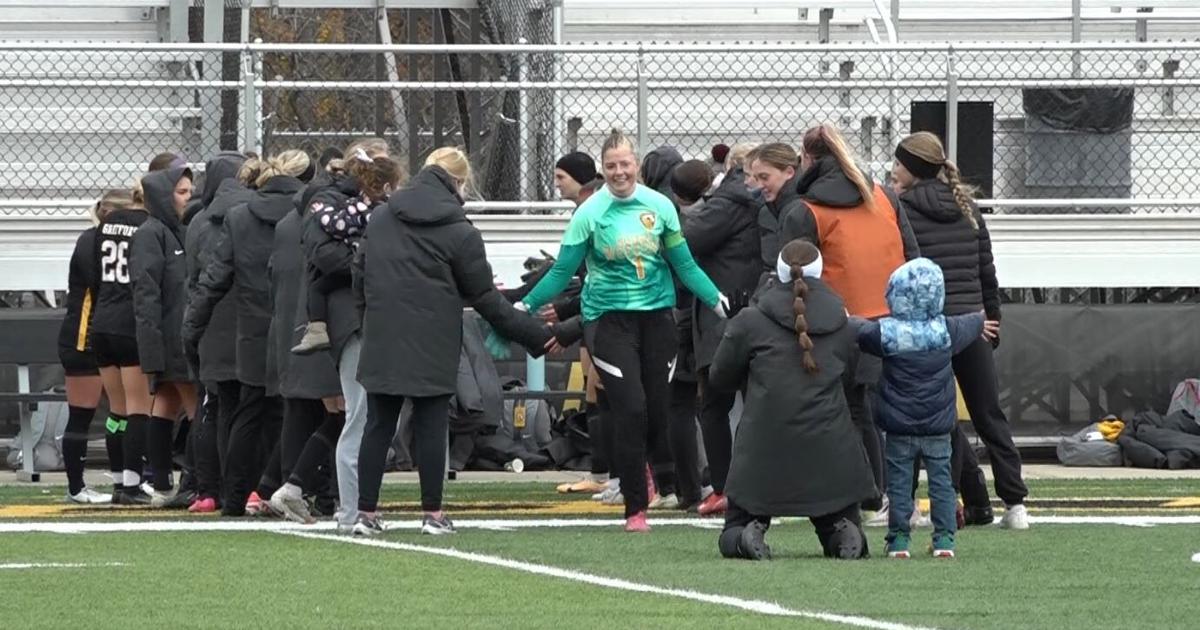(ST. JOSEPH, Mo.) There has been an increase in suicide among NCAA athletes between 2002 and 2022 has risen to the second leading cause of death behind accidents, according to the British Journal of Sports Medicine.
Although the statistics are alarming, area universities are working to build a culture based on accepting mental health to keep their student-athletes in the game.Â
Northwest Missouri State University’s athletics department works closely with its Wellness Services department to ensure that students and athletes receive adequate assistance with the games in their heads and on the field.Â
Northwest Athletics Assistant Athletic Trainer and Senior Woman Administrator Christy Tapps said this starts with mentally and physically caring for student-athletes. Â
“The approach we take from there is we are trying to get to a place where we can be proactive rather than reactive to situations,” said Tapps. “Every person, every situation, is going to be different, so how they want to access counseling resources is going to be different.”Â
Their plan in place allows that when they spot a student-athlete who may seem a little off, they can check on that individual and offer them help directly on campus through the Wellness Services department.Â
Although the Wellness Services department helps all of its students on campus, counselors like Rachel Mayfield are happy to be available to diversify their services to support athletes with their on-field issues.Â
“Any athlete can come to anybody, and so sometimes athletic trainers know like, oh, this might do better with a male counselor,” said Mayfield. “So they might connect them with that person, or word got out that I worked well with this football player.”
While this type of culture is still ongoing at Northwest, Missouri Western State University is also working on its way to check on its athletes.
According to Lia Graham, former Plattsburg Tiger and now Missouri Western Volleyball player, Missouri Western’s athletic trainers aren’t the only ones who try to keep tabs on its athletes’ mental health; its coaches do, too.Â
“My coach is always, you know, open door,” said Graham about MWSU Head Volleyball Coach Jessica Fey. “She’s already told us, like, you guys are away from home, and that means I’m your mom. If you are in a car accident or any kind of trouble, you call me first.”Â
Along with coaches trying to make Missouri Western a home away from home, athletic trainers also try to check in with daily mental health check-ins. However, according to Griffon Soccer head coach Jacob Plocher, the entire department ensures that everyone is looked after regardless of sport.Â
“It’s not just, you know, our staff who care about our players, it’s up and down the hallway,” Plocher said. “If they see something that might be off to them or hear something, and, we obviously are able to get that information and kind of sift through it and try to explore to make sure it’s as I said, we’re able to help them any way that we possibly can.” Â
That kind of environment can inspire those who go through it to follow a path to help others like them, such as Mid-Buchanan Alumni and graduated Missouri Western Student Athlete Bailey Gilbert now goes through her journey in sports psychology at Kansas University.Â
When Gilbert was young, she was diagnosed with Autism, and it was suggested by her doctors and her parents to get into a social environment, which led her to sports. Her journey in sports eventually took her to compete in Track and Field at Missouri Western. While there, she earned her Sports and Exercise Science degree before going after her Masters in the same degree at Kansas University. She is now in the process of earning a degree in Sports Psychology as a Jayhawk.Â
Gilbert’s dream, when she completes her studies, which also includes getting a counseling degree, is to be able to help athletes with what’s happening on the field and off of it with her own practice and aspirations of assisting athletes on a professional stage.
“I do think that, especially in the athletic training room, just, you know, having someone who really does side with you on the mental aspect and know how challenging it is being out of the sport, I think could be very beneficial,” said Gilbert. “I believe athletes, especially in the higher level, have a lot of pressure on them, whether it’s in academics, outside sources, and sport itself. But I really believe that the reason athletes need those mental skill works for their performance and the reason their performance might not be up to the standard that they should be at is because of outside sources.”Â
With such a dark statistic, there seems to be light in fighting the subject locally based on the efforts of these universities and the people they inspire.
Those needing assistance with any suicidal thoughts should dial the National Suicide and Crisis Lifeline at 988 or click here.Â


